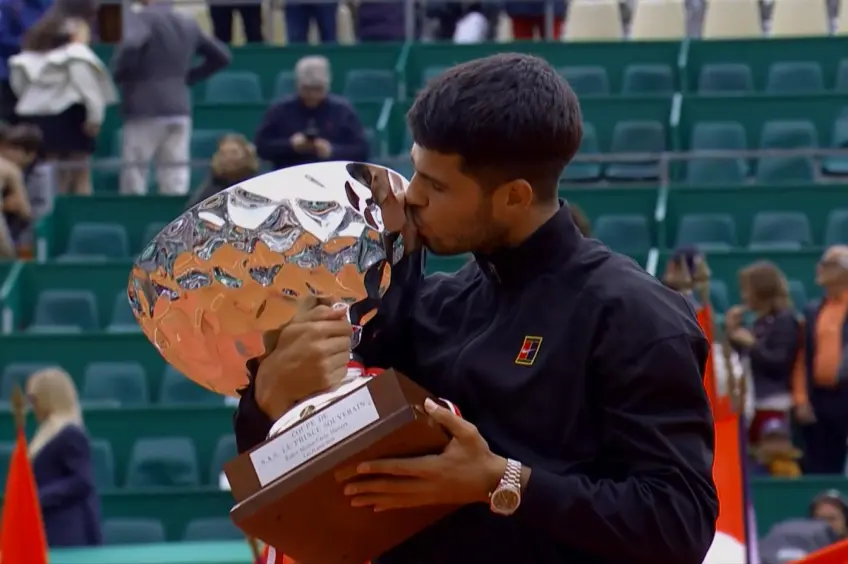
The clay courts of Monte Carlo have long been a proving ground for tennis greatness, and in 2025, Carlos Alcaraz added his name to the tournament’s storied legacy with a thrilling victory. The 21-year-old Spaniard’s triumph at the Rolex Monte Carlo Masters, where he battled back from a set down to defeat Lorenzo Musetti, drew heartfelt praise from none other than Rafael Nadal, the event’s record 11-time champion. “It’s amazing to see Carlos win here,” Nadal said, his words carrying the weight of a legend who knows the demands of conquering the Principality. “Monte Carlo is special, and he’s shown he’s ready to carry the torch.” This victory, Alcaraz’s sixth Masters 1000 title, not only marked a personal milestone but also signaled a new era for Spanish tennis, with Nadal’s endorsement underscoring the moment’s significance.
Alcaraz’s journey to the Monte Carlo crown was a testament to his resilience and flair. Facing Musetti, a first-time Masters 1000 finalist, Alcaraz dropped the opening set 3-6, as the Italian’s crafty play tested his resolve. But the world No. 3 roared back, dominating the second set 6-1 and sealing the match 6-0 after Musetti’s hip injury hampered his movement. “I just wanted to stay strong mentally,” Alcaraz said after a previous high-stakes win, a mindset that shone through as he navigated early pressure to claim the title. The victory earned him €946,610 ($1,021,255), pushing his 2025 prize money to $2,376,810, surpassing Jannik Sinner’s $2,150,400. At 21 years and 337 days, Alcaraz became the youngest men’s champion in Monte Carlo history, eclipsing Nadal’s 2005 record by 16 days.
Nadal, whose dominance at Monte Carlo includes an Open Era record of eight consecutive titles from 2005 to 2012, sees Alcaraz as more than a successor—he’s a force redefining the sport. “He plays with so much heart and energy,” Nadal noted, praising the younger Spaniard’s ability to electrify crowds. Alcaraz’s path to the final was no cakewalk. He overcame a grueling quarterfinal against Arthur Fils, winning 4-6, 7-5, 6-3, and outlasted Alejandro Davidovich Fokina in the semifinals. Each match showcased his versatility—blending ferocious groundstrokes with delicate drop shots—on a surface where Nadal himself built an empire. For Alcaraz, winning in Monte Carlo, a tournament he’d only played once before in 2022, felt like a homecoming. “I’m really happy to be here,” he said earlier in the week, expressing his excitement at competing in a place so steeped in Spanish tennis history.
The significance of Alcaraz’s achievement resonates beyond the scoreboard. Monte Carlo has been a Spanish stronghold, with champions like Manuel Orantes, Sergi Bruguera, Carlos Moya, and Juan Carlos Ferrero preceding Nadal’s reign. Alcaraz’s victory adds a new chapter, reinforcing Spain’s clay-court legacy. Yet, he remains humble about matching Nadal’s 11 titles. “I’ve just got my first one,” he admitted with a smile. “It’s impossible to think about getting that many, but I’ll keep trying.” His grounded perspective, paired with a relentless drive, mirrors the qualities that made Nadal a global icon, from his teenage breakthrough in 2005 to his historic 2018 title, when he became the first man to win the same event 10 times in the Open Era.
Nadal’s praise carries personal weight, given their shared history. The two have faced off three times, with Alcaraz stunning his idol in Madrid in 2022, and they teamed up for doubles at the 2024 Paris Olympics, a memory Alcaraz cherishes. “Playing the
Leave a Reply